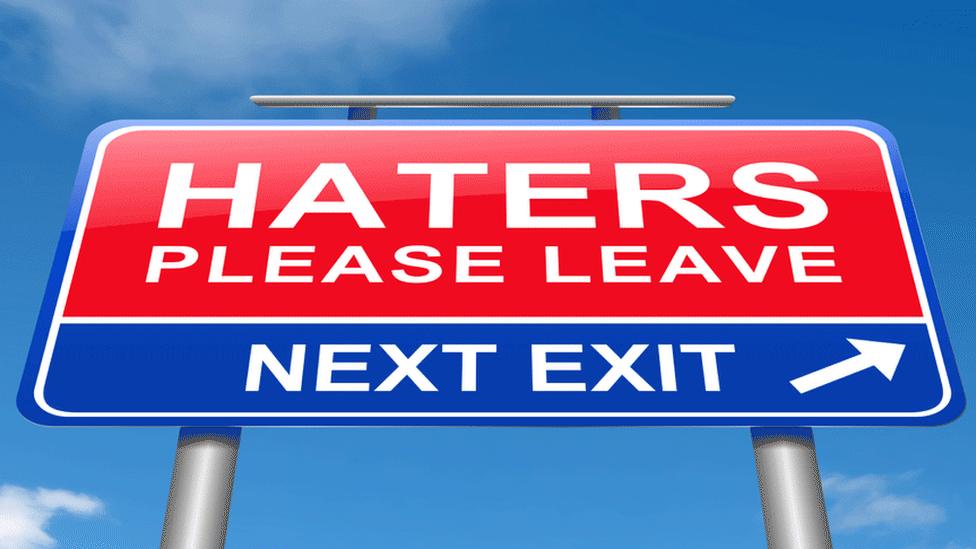Net firms 'better' at removing hate speech, says EU
- Published

The firms have improved since the scheme was introduced in 2016
Net firms are getting better at removing illegal hate speech, according to the European Union.
Facebook, Twitter, YouTube and Microsoft all took place in a voluntary EU scheme to monitor their platforms for a six-week period at the end of 2017.
On average they removed 70% of material deemed to be offensive. This is up from 28% in 2016 and 59% in 2017.
Instagram has announced that it will now also join the scheme.
Under the voluntary code of conduct scheme, introduced in May 2016, the technology firms have committed to combating the spread of hate speech, whether that be xenophobia, anti-migrant or anti-Islam sentiments.
Firms are getting better at removing the majority of such content reported to it within 24 hours but further work could be done on feeding back to users, the EU said.
'Fundamental rights'
Andrus Ansip, European Commission vice-president for the digital single market, welcomed these improvements, saying the results "clearly show that online platforms have increased their efforts to review notifications and remove illegal hate speech within 24 hours".
He added: "I strongly encourage IT companies to improve transparency and feedback to users, in line with the guidance we published last year. It is important safeguards are in place to avoid over-removal and protect fundamental rights such as freedom of speech."
V臅ra Jourov谩, EU Commissioner for Justice, Consumers and Gender Equality, added: "The internet must be a safer place, free from illegal hate speech, free from xenophobic and racist content.
"This shows that where there is a strong collaboration between technology companies, civil society and policy makers we can get the right results, and at the same time, preserve freedom of speech."
Germany has begun enforcing a law that demands social media sites remove hate speech, fake news and illegal material within 24 hours or face fines of up to 50m euros (拢44m).
- Published29 September 2017
- Published1 January 2018